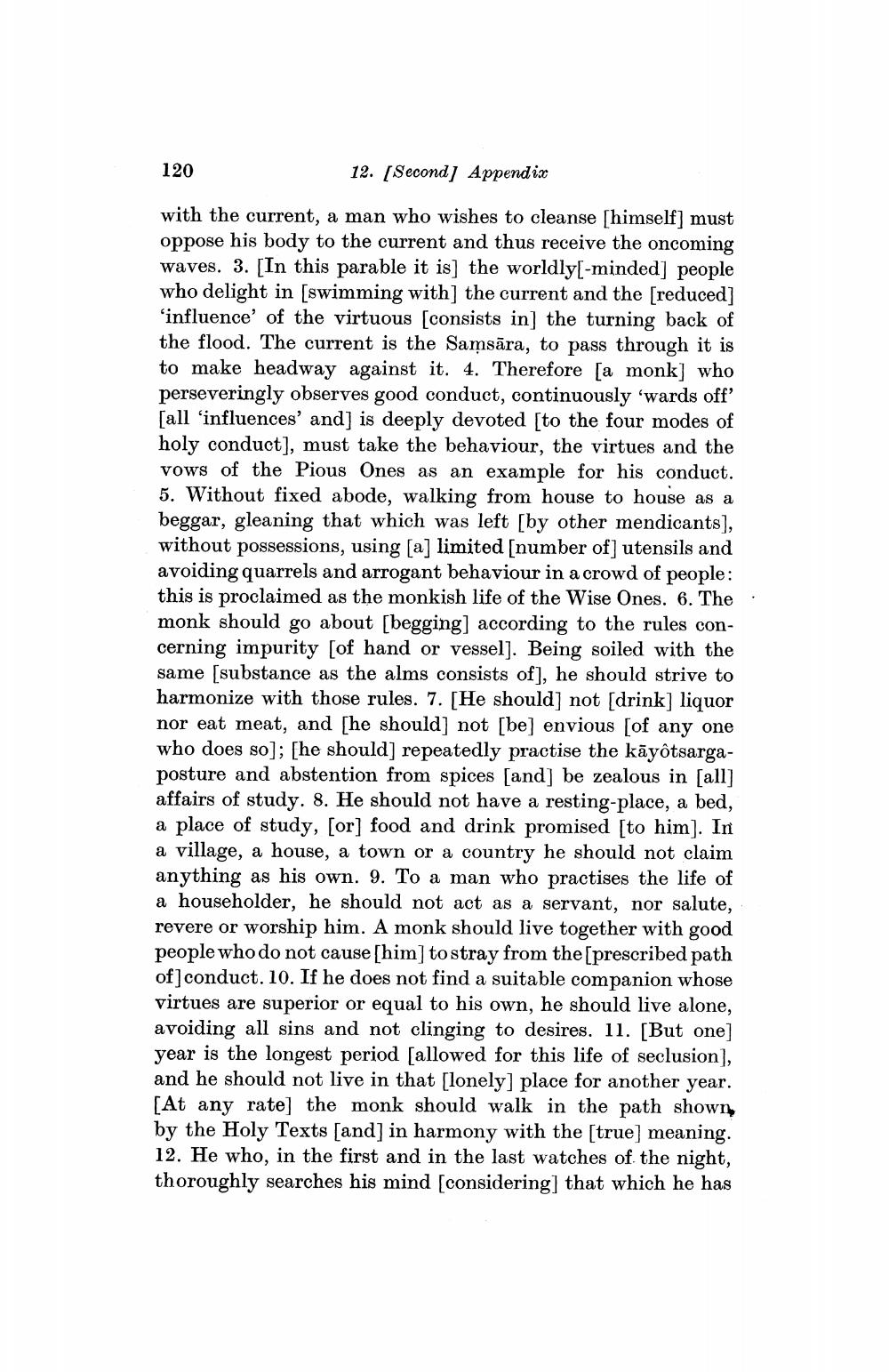________________
120
12. [Second] Appendix
with the current, a man who wishes to cleanse [himself] must oppose his body to the current and thus receive the oncoming waves. 3. [In this parable it is] the worldly[-minded] people who delight in [swimming with] the current and the [reduced] 'influence of the virtuous [consists in the turning back of the flood. The current is the Samsāra, to pass through it is to make headway against it. 4. Therefore [a monk] who perseveringly observes good conduct, continuously 'wards off' [all 'influences' and] is deeply devoted to the four modes of holy conduct], must take the behaviour, the virtues and the vows of the Pious Ones as an example for his conduct. 5. Without fixed abode, walking from house to house as a beggar, gleaning that which was left [by other mendicants), without possessions, using [a] limited number of] utensils and avoiding quarrels and arrogant behaviour in a crowd of people: this is proclaimed as the monkish life of the Wise Ones. 6. The monk should go about [begging] according to the rules concerning impurity [of hand or vessel]. Being soiled with the same [substance as the alms consists of], he should strive to harmonize with those rules. 7. [He should] not (drink] liquor nor eat meat, and [he should] not [be] envious [of any one who does so]; [he should] repeatedly practise the kāyôtsargaposture and abstention from spices [and] be zealous in [all] affairs of study. 8. He should not have a resting-place, a bed, a place of study, [or] food and drink promised [to him). In a village, a house, a town or a country he should not claim anything as his own. 9. To a man who practises the life of a householder, he should not act as a servant, nor salute, revere or worship him. A monk should live together with good people who do not cause [him] to stray from the (prescribed path of]conduct. 10. If he does not find a suitable companion whose virtues are superior or equal to his own, he should live alone, avoiding all sins and not clinging to desires. 11. [But one] year is the longest period [allowed for this life of seclusion), and he should not live in that [lonely] place for another year. [At any rate] the monk should walk in the path shown, by the Holy Texts [and] in harmony with the [true] meaning. 12. He who, in the first and in the last watches of the night, thoroughly searches his mind [considering that which he has




